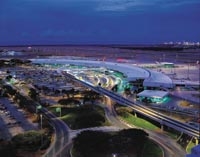NT trade surges. WA, NSW, Vic, Qld agri exports boost
 THE RATE of trade growth for the Northern Territory was a stand-out in 2012-13, but agricultural exports from other states recorded healthy growth too, according to the latest report from the Department of Foreign Affairs and Trade (DFAT).
THE RATE of trade growth for the Northern Territory was a stand-out in 2012-13, but agricultural exports from other states recorded healthy growth too, according to the latest report from the Department of Foreign Affairs and Trade (DFAT).
The Northern Territory’s rate of trade growth accelerated in 2012-13. Both export and import volumes were up more than 15 percent on the previous year, according to the DFAT report, Australia's Trade by State and Territory 2012-13.
Exports volumes from Western Australia and Queensland also grew strongly, up 9 percent and 6 percent, respectively.
Australian farmers gained a 10 percent increase in exports of unprocessed food to $15.2 billion.
Exports of oilseeds, mainly canola, increased strongly for Victoria and New South Wales. Both states were up around 100 percent to $721 million and $469 million respectively.
Queensland registered strong growth in exports of vegetables, up more than 50 percent to $455 million.
Western Australia’s wheat exports were up 46 percent to $2.7 billion.
Western Australia remained Australia’s export powerhouse accounting for $122.7 billion – or 41 percent – of Australia's total exports, followed by New South Wales and Queensland with 21 percent and 18 percent, respectively.
New South Wales remained Australia’s leading destination for imports, accounting for 34 percent (or $109.4 billion), followed by Victoria, Queensland and Western Australia.
DFAT publishes publishes an extensive range of trade and economic statistics, designed to improve knowledge and assist the development of trade industries. Various reports and historical trade statistics are available publicly on the Department of Foreign Affairs and Trade website.
To assist Australian businesses, DFAT also offers a trade data consultancy service, which can produce reports tailored to specific requirements. For further information, email
The state-based statistical guide to exports and imports of goods and services is available at: Australia's Trade by State and Territory 2012-13.
ends

 How to resolve AdBlock issue?
How to resolve AdBlock issue? 






